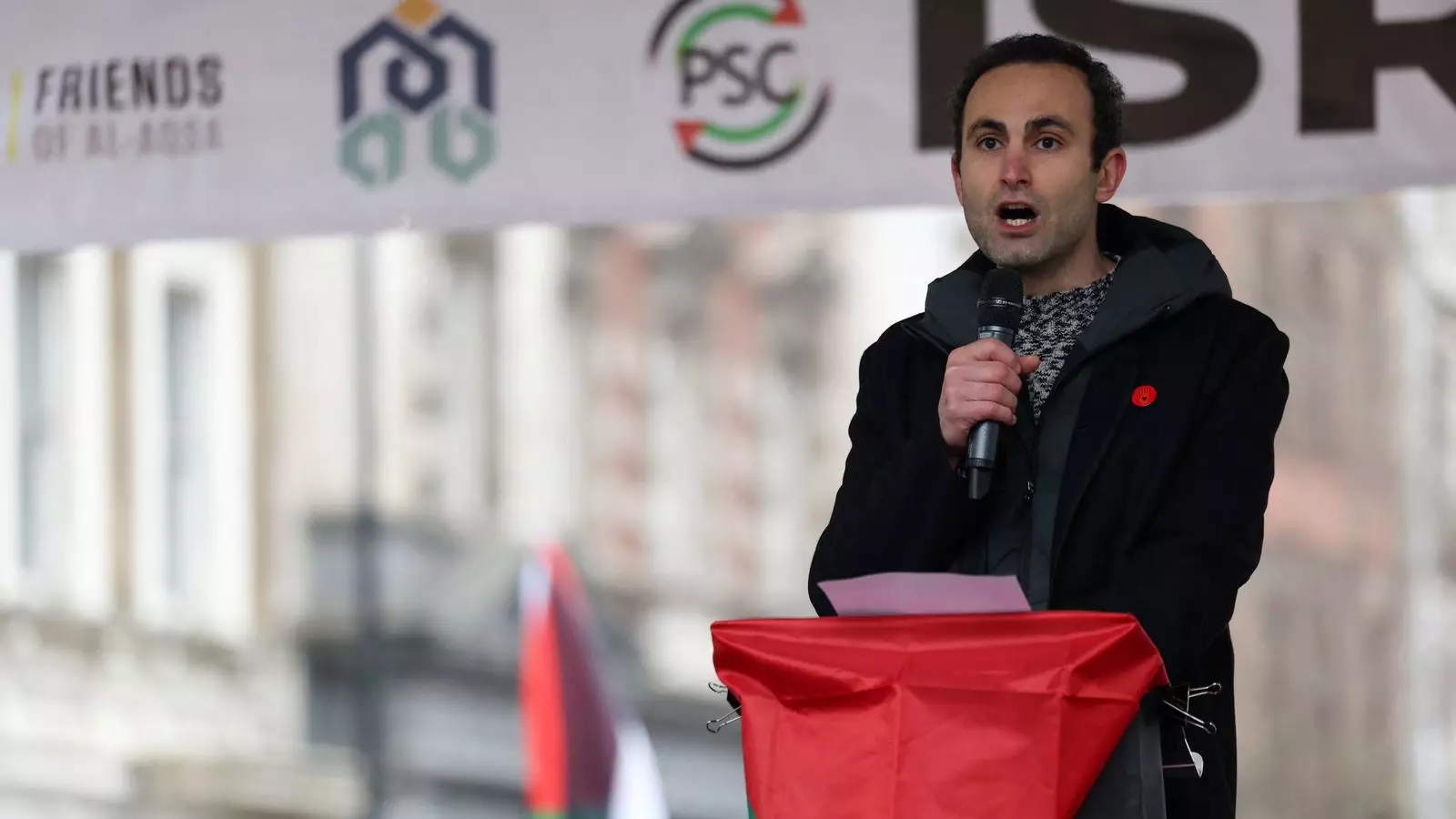In a disconcerting revelation, Khalid Abdalla, renowned for his role in the Netflix series “The Crown,” shared that he received a police summons in connection to a pro-Palestinian protest held on January 18. This incident casts a jarring light on the implications of civil liberties in the UK, especially when an acclaimed actor and an 87-year-old Holocaust survivor find themselves under scrutiny for their activism. Abdalla vigorously emphasized that the essence of a democratic society hinges on the right to protest, urging citizens to defend this vital freedom against a system that appears to increasingly curb dissenting voices in favor of a status quo that many believe is unjust.
At the core of Abdalla’s protest was not merely political ideology but a profound call for humanitarian intervention and the end of violence against innocent lives. When police begin to criminalize and scrutinize protests, it raises an alarming question: Are we witnessing the erosion of democratic freedoms? To treat protestors with suspicion is not only an affront to their rights, but it invites a chilling atmosphere where activism becomes synonymous with criminal behavior. For me and countless others who value democratic rights, the implications of Abdalla’s experience are particularly unsettling. The fragile balance of power between state authority and civil liberties hangs perilously.
While law enforcement plays a crucial role in maintaining order, it is imperative that their actions do not infringe on freedoms outlined in the very fabric of our societies. The Metropolitan Police’s statement regarding ongoing investigations into the January protest presents serious concerns about its selective enforcement of the Public Order Act. It seems almost sinister that individuals like Abdalla and Stephen Kapos—men linked not only by their civil rights activism but also by historical trauma—find themselves ensnared in a system that appears to prioritize legal ramifications over empathy or dialogue.
The chilling reaction towards protests in the UK is not an isolated incident; it reflects a worrying global trend where governments are increasingly vigilant against dissent. Whether in the realm of climate activism or pro-democracy movements, repressive measures by authorities risk galvanizing public outrage and resistance. The implications of Abdalla’s situation stretch far beyond the immediate: they signal a broader crackdown that threatens the freedom of expression across the globe. In a world marked by growing inequality and division, protesters have risen as the conscience of society, but what does it mean when fighting for justice results in coercive repercussions?
Complicating matters is the tension between public order and fundamental human rights. Police allege that activists ‘forced their way’ through lines, creating disturbances during the aforementioned protest. However, Abdalla’s insistence that the right to protest is under attack poses a crucial argument: should a peaceful gathering in pursuit of justice be treated as a criminal act? The right to express dissent is not merely an administrative issue but a personal, moral obligation for many citizens. The struggle for justice must not be blurred by the language of crime, and to label peaceful protesters as perpetrators depicts an unsettling narrative that undermines the very fabric of society.
The decision to invite high-profile figures to police interviews serves as a stark reminder of black-and-white historical lessons. Just as those who opposed the horrors of totalitarian regimes faced repercussions, today’s activists similarly stand at a crossroads. The presence of influential figures like Jeremy Corbyn in this dialogue is no coincidence; it highlights the ongoing battle between those who advocate for human rights and those who would rather see dissent silenced. As Abdalla’s activism intertwines with historical memory, it revives essential conversation around the sacrificial price of moral conviction.
Ultimately, Khalid Abdalla’s case is more than merely an isolated incident; it lays bare the growing uncertainty that accompanies civil disobedience in our contemporary world. The intersection of activism, state authority, and human rights comes to the forefront in ways that challenge us to weigh our own responsibilities within the societal landscape. As tensions mount globally, our collective response may shape the future of democratic rights for generations to come.


Leave a Reply